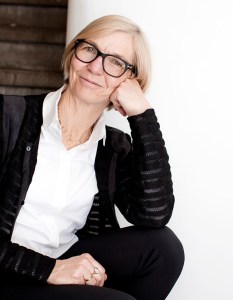The ARCC James Haecker Award for Distinguished Leadership in Architectural Research recognizes an individual who has made outstanding contributions to the growth of the research culture of architecture and related fields, including urban and regional planning, landscape architecture, and interior design. Named in honor of ARCC’s founding Executive Secretary, the recipient of the prestigious James Haecker Award has demonstrated a record of sustained and significant research leadership at the national and/or international level.

Given the innovative, sustained and high impact of her work, the ARCC Board of Directors is pleased to announce the recipient of the 2020 ARCC James Haecker Award for Distinguished Leadership in Architectural Research is Dana Cuff.
Dana Cuff, Ph.D. is Professor of Architecture and Urban Design at UCLA where she is also Director of cityLAB, an award-winning think tank that advances experimental urbanism and architecture (www.cityLAB.aud.ucla.edu). Since receiving her Ph.D. in Architecture from UC Berkeley, Cuff has published and lectured widely about spatial justice, the architectural profession, and affordable housing. She is author of several books, including The Provisional City about postwar housing in Los Angeles, and a co-authored book (released early 2020) documenting her innovative cross-disciplinary project at UCLA called the Urban Humanities Initiative, funded by the Mellon Foundation. Based on cityLAB’s design research, she co-authored a landmark bill that permits “backyard homes” on virtually all 8 million single-family properties in California (AB 2299, Bloom-2016), doubling the density of suburbs across the state. She and her team are currently working on a wide range of new forms of affordable housing to be co-located with schools. cityLAB recently initiated a satellite center in one underserved neighborhood of Los Angeles, where a deep, multi-year exchange with community organizations will demonstrate ways that embedded research and humanistic design of the public realm can create more compassionate cities.

You must be logged in to post a comment.